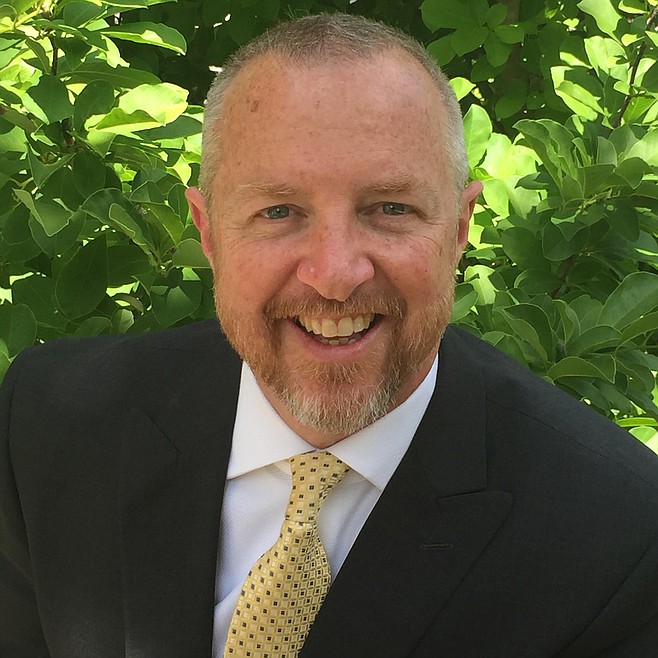Make the most of rising assets
On the day I set out to write this column, the front page above-the-fold headline in the Coeur d’Alene Press was “Housing market shows no signs of slowing down.” Among other things, the author of the article pointed out that the average sales price of a home in Kootenai County was $415,000 in January and the median sales price of a home in Coeur d’Alene has risen to $509,000. The article did not address rising prices in commercial properties, but I’m assuming that commercial property values are up here as well.
In the afternoon of the same day, the Dow Jones Industrial Average finished trading at its third highest close in history, just 91 points below an all-time record. The S&P 500 Index closed only 58 points below an all-time record.
Highly appreciated assets abound in North Idaho!
This article is about philanthropy; more specifically, about the incredible opportunities that rising asset values in North Idaho create to benefit our outstanding local nonprofits. In my 18 years in North Idaho, I have been amazed at the generosity of the folks who live here. Whether it’s the North Idaho College Foundation Raffle House event, the Salvation Army Kroc Center Kettle Drive, the Kootenai Health Festival of Trees, the North Idaho Hospice Wine event, or any of the other myriad fundraising opportunities large and small in our area, the people who live here show up and give, give, and then give some more. It is a cultural phenomenon of which I am proud to be a part.
Back to highly appreciated assets. We have a historic opportunity in North Idaho. Donors have opportunities to benefit local nonprofits while at the same time mitigating tax liabilities and accomplishing other financial goals of their own. Financial, tax, and real estate advisers have opportunities with a number of tools in their tool belt to assist their clients.
Here are a few examples of the opportunities that currently exist:
Direct gifts of appreciated assets. Instead of selling an appreciated asset (such as stocks, bonds, mutual funds, or real estate), a donor can arrange to transfer the asset directly to the nonprofit. Many nonprofits maintain a securities brokerage account to accommodate gifts of stocks and bonds. The nonprofit can then sell the asset and avoid the capital gains tax. There may be some restrictions on the amount of the deduction depending on your income levels, so coordinate the gift with your tax adviser.
Direct transfers from an Individual Retirement Account. The donor must be in Required Minimum Distribution status to take advantage of this strategy. Currently, an IRA owner can transfer up to $100,000 directly to a nonprofit without it being considered a taxable distribution. That means the transfer won’t need to be reported as taxable income. Again, coordinate the transfer with your tax adviser to make sure all the i’s are dotted and t’s are crossed.
Charitable Remainder Trusts. There are outstanding strategies here that allow donors to avoid capital gains taxes and to lock in an income stream for a specified time period or for life (or multiple lives). CRT’s can be particularly effective exit strategies for highly appreciated real estate holdings, low basis closely-held businesses, and low basis concentrated stock holdings.
Legacy Giving. I would be remiss if I didn’t mention my favorite philanthropic strategy. Consider leaving a bequest in your will, a distribution from your trust, or a benefit from your life insurance policy or IRA to a local nonprofit. If you are currently making annual or regular periodic gifts to charity, consider what happens to that cash flow to the charity after you are gone!
There are other charitable contribution strategies that can be customized to your situation and your favorite charity(ies). Check with the nonprofit — many offer endowment opportunities where you can lock in a future cash flow for the nonprofit in perpetuity. In addition, both Innovia and the Idaho Community Foundation offer donor advised funds.
Donors, please don’t let this opportunity go by without at least considering leveraging a portion of your highly appreciated assets for local philanthropic use. Some nonprofits have staff who can give some assistance, or contact your legal, financial, tax, or real estate advisers to design a plan appropriate for your goals.
• • •
Steve Masterson of Trust Solutions, Inc., lives in Coeur d’Alene and is the president of the North Idaho College Foundation. He also serves on the Advisory Board of the Salvation Army Ray and Joan Kroc Community Center.

